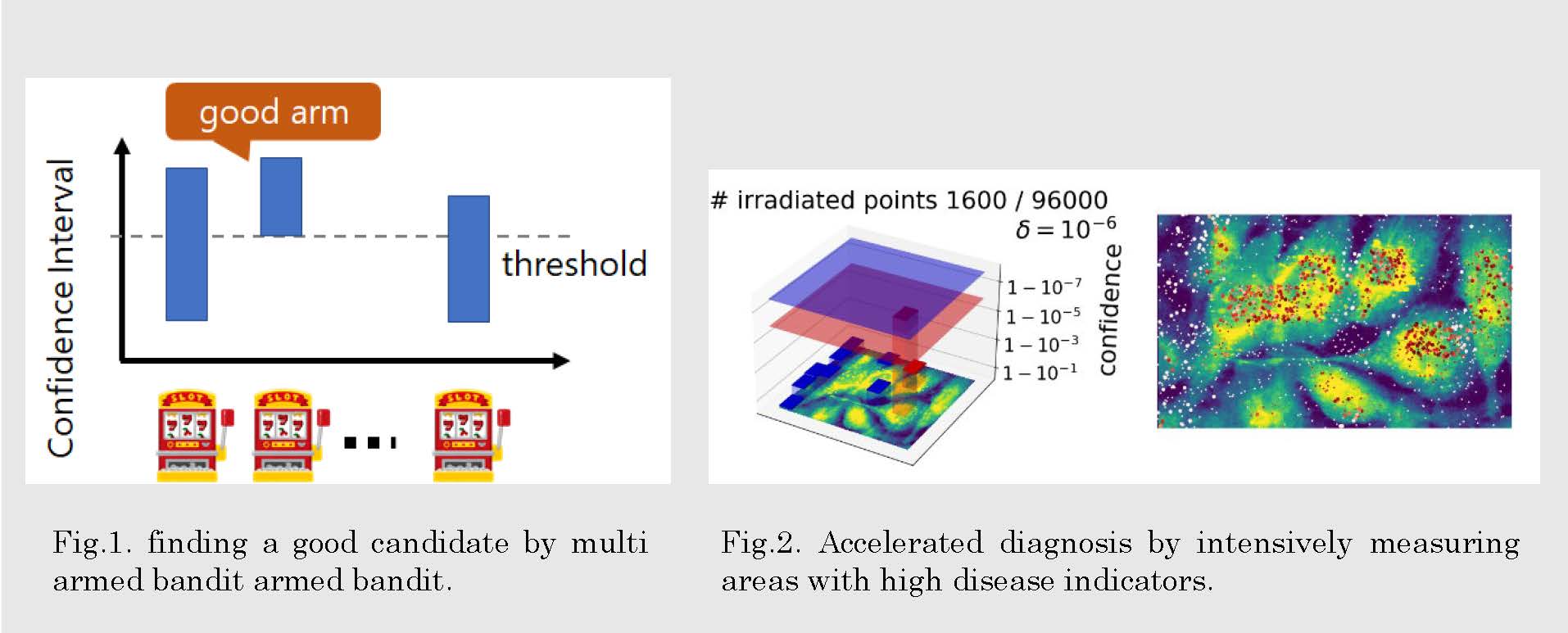
RIES
Research Institute for Electronic Science, Hokkaido University
北海道大学
電子科学研究所

LAST UPDATE 2022/07/13
-
研究者氏名
Researcher Name田畑公次 Koji TABATA
准教授 Associate Processor -
所属
Affiliation北海道大学 電子科学研究所
附属社会創造数学研究センター データ数理研究分野
Research Institute for Electronic Science, Hokkaido University
Research Center of Mathematics for Social Creativity, Molecule & Life Nonlinear Sciences Laboratory -
研究キーワード
Research Keywords機械学習
多腕バンディット
純粋探索問題
Machine learning
Multi-armed bandit
Pure exploration problem
- 研究テーマ
Research Subject -
多腕バンディットアルゴリズムの開発と応用
Development and application of multi-armed bandit algorithm
研究の背景 Background of the Research
多腕バンディットとは、K個ある腕とよばれる選択肢の中から毎時刻一つ選択し、選ばれた腕に対応する未知の確率分布から報酬を受け取るのを交互に繰り返すモデルです。このような状況で例えば「ある時刻までの累積報酬の最大化」など所与の目標を達成するためには、知識利用と探索のトレードオフという問題を考える必要があります。このモデルは、インターネットの広告配信や計測の迅速化・効率化やゲームAIなど近年様々な応用されています。
Multi-armed bandit is a model in which the agent selects one of the K options called as arms in every time step and observes reward from chosen arm. To achieve a given goal, for example, "maximizing cumulative rewards up to a certain time", it is necessary to consider the trade-off between knowledge exploitation and exploration. This model has been applied in various area in recent years, such as online advertising, speeding up and efficiency of measurement, and game AI.
研究の目標 Research Objective
現在、ラマン計測による診断の効率化を実現するための問題設定を数学の問題として定式化や、精度保証のある計測を実現するための多腕バンディットアルゴリズムの開発などを行っています。計測と情報が高度に融合したシステムの実現を目標にしています。
I am working on formulation of mathematical problem settings to improve diagnosis efficiency using Raman measurement, development of multi-armed bandit algorithm to realize measurement with guaranteed accuracy, etc. My target is to realize various systems in which measurement and information are highly integrated.
研究図Figures

Fig.2. Accelerated diagnosis by intensively measuring areas with high disease indicators.
論文発表 / Publications
Koji Tabata, Atsuyoshi Nakamura, Junya Honda and Tamiki Komatsuzaki, “A bad arm existence checking problem: How to utilize asymmetric problem structure?”, Machine Learning, 109(2), 327-372, 2020.
研究者連絡先 / HP
- ktabata
 es.hokudai.ac.jp
es.hokudai.ac.jp - http://mlns.es.hokudai.ac.jp/